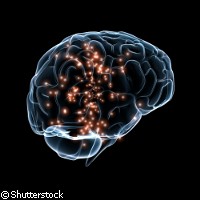Brain mechanisms behind simple decisions less complex than previously thought
Simple decision-making tasks are not processed in the part of the brain responsible for higher aspects of cognition such as self awareness as was once thought, according to new EU-funded research. Instead, they are processed in the brain regions that receive relevant stimuli and control the body's response to it. The work, which is published online by the journal Nature Neuroscience, was partly financed through the EU-funded project 'Investigations in Brain Sciences Education Network', which is supported through the Marie Curie scheme under the Sixth Framework Programme (FP6). 'It is important to understand how the brain makes decisions under normal conditions to gain insight into diseases like Alzheimer's disease, traumatic brain injury or stroke in which decision making is disrupted,' explained Professor Maurizio Corbetta of Washington University School of Medicine in the US. 'We like to think of our decisions as wilful acts, but that may be an illusion. Many decisions may be much more directly and automatically driven by what our brain is sensing.' For a long time researchers assumed that humans had a kind of decision-making module in their brain that involved the frontal lobe, the part of the brain responsible for higher cognitive processes. However, recent research has revealed that in monkeys, simple tasks are mediated by relatively simple mechanisms embedded in the brain's sensory-motor regions. In this latest study, scientists from Italy and the US set out to see if the same was true in humans. They trained volunteers to carry out a task that involved discriminating between a picture of a face and a picture of a building. If they saw a face, the volunteers had to move their eyes in a certain direction; if they saw a building, they had to point their hand in the same direction. 'This decision is not automatic. It requires both attention to the stimuli and control of the response,' said Professor Corbetta. Varying degrees of noise obscured the pictures for the brief time they were visible. While the volunteers performed the task, their brains were scanned with functional Magnetic Resonance Imaging (fMRI). The scans revealed that activity in the part of the brain responsible for planning actions such as eye or hand movements increased depending on the type of picture shown (a face or a building) and the type of response the brain was planning (eye or hand movement). When the picture had less noise, making the decision easier, brain activities in the relevant brain area rose accordingly. 'This suggests that these regions in the parietal lobe processed all the sensory, decision and motor signals necessary to make and act on the decision,' commented the paper's lead author Annalise Tosoni, a graduate student at the University of Chieti in Italy. 'In contrast, no area in the frontal lobe, thought to be involved in decision making, significantly increased its activity at the time of the decision.' 'Even for arbitrary and somehow complex visual decisions, it seems to be purely a matter of the amount of sensory information pushing the brain toward one choice or another,' added Professor Corbetta. According to the researchers, the findings support the idea of 'embodied cognition', in which abstract cognitive functions are based on simple sensory-motor processing mechanisms. Put simply, 'to see and decide is, in effect, to plan a motor response,' the scientists write. The team now plans to investigate whether more complex decisions are processed by the same sensory-motor mechanism, and whether decisions are affected by the amount of reward the subject expects when carrying out simple and complex decisions.
Countries
Italy, United States



